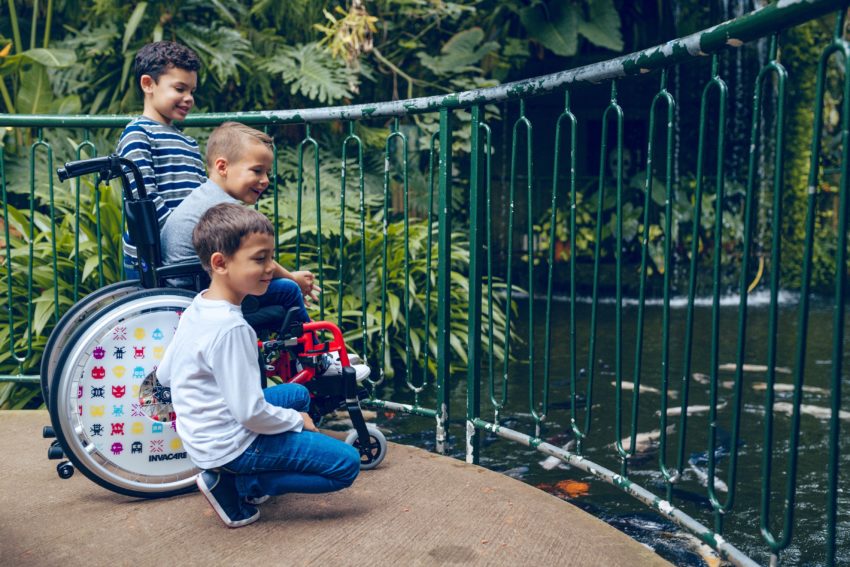A Guide to Working With Special Needs Children: What You Need to Know

So, you’re considering working with special needs children, or maybe you do and you’re simply looking to enhance your skills and confidence.
Either way, this guide is for you. Children with additional requirements should be entitled to the same amount of care, support and learning opportunities as their non-disabled peers, but working with special needs children can often require extra training, knowledge and resources. Here are our hints and tips to working with special needs children, and we hope it helps you.
1. Don’t forget to interact
When communicating with disabled children, it is mostly adults that fail to get it right. They have the best of intentions, but if a child doesn’t respond in a way they hoped, they give their focus to the child’s parent, or a friend that knows them well, instead. Interacting and communicating with the child, regardless of how they respond to you, is so important in building trust and a rapport, as is eye contact and a smile!
2. Support from afar
Even if the child you are working with is playing with friends or working independently, don’t forget to observe them and monitor how they are reacting to the environment around them. Do they get distracted by certain noises or sensory inputs such as light, or do they respond particularly well to a certain instruction, or really enjoy a distinct activity? Observing the behaviour of the special needs child you are working with will only accelerate the ‘getting to know you’ process and enable you to implement what you’ve learnt into certain activities and conversations with them.
3. Positivity is everything
And consistency and flexibility count here, too. Your behaviour and attitude is going to be setting a prime example to those you are working with, and this has never been more applicable than when we are talking about children with additional needs and requirements. It is vital that you encourage and show a positive outlook, whenever possible, and that that outlook is consistent during the working week, regardless of what is going on in your personal life. You will build small friendships with the children you work with, and they will depend on you to support and help them, even when they are struggling to help themselves. Your flexibility is paramount, too. Should your child have a meltdown from sensory overload, or become aggressive following an argument with a friend, for example, you need to be able to stop everything that you are doing and put your professional training into practise, to ensure that the child you are working with will be safe, and will not jeopardise the safety of his or her peers.
This role is by no means an office job without responsibility, but it will be something that you feel proud to have embarked on, especially when you start to see the difference you are making to the lives of many.
If you would like to read more articles like this, such as; “What to consider in a children’s wheelchair: Action 3 junior”, be sure to check out the rest of Invacare’s Passionate People’s blog site.







